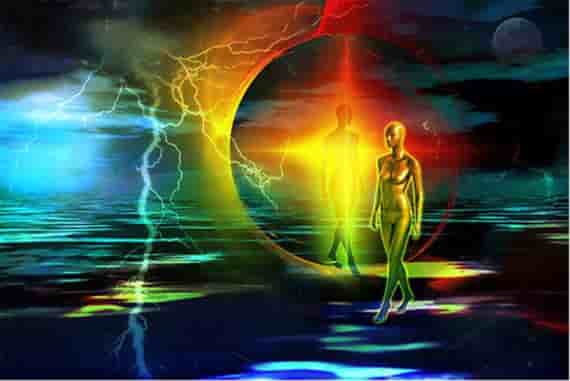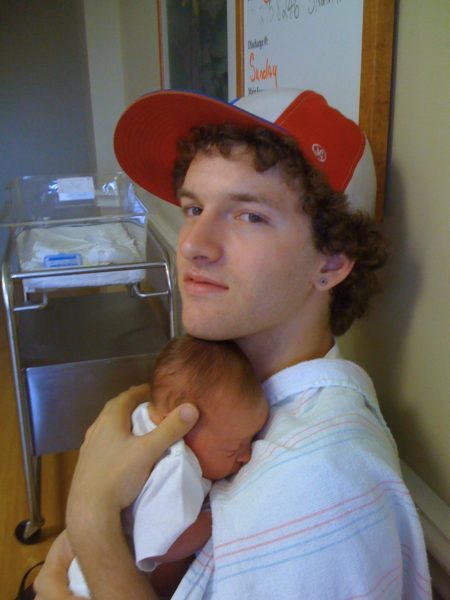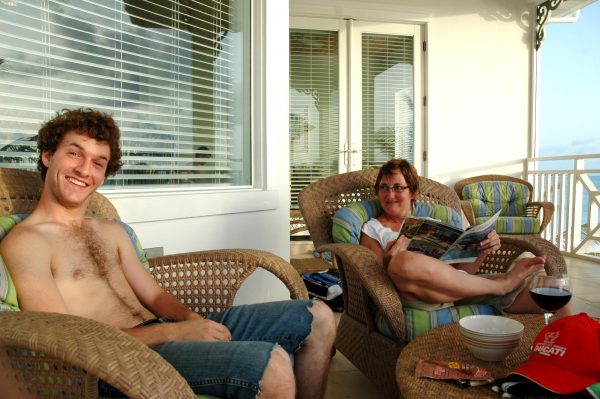I just finished the book, From Elsewhere: The Subculture of Those Who Claim to be of Non-Earthly Origins, written by Scott Mandelker, PhD. and would like to share those parts of the book that offer what I consider to be the most incredible insight into Death and Love that I’ve ever come across. It is my greatest hope that this entry will help those of us (and there are many) who hail from other planets find comfort and purpose while we’re here.
In his interview with ET’s. here on earth, Mandelker discovers their views on death. One such E.T., Soren, discusses his viewpoint: “It’s facile to say that death doesn’t exist. But that’s part of the truth. The other part is to say: It really has nothing to do with me. I don’t die. The reality to me is that people can’t die. And I look forward to it the way people look forward to peeling off an uncomfortable suit of clothes at the end of a workday.”
This is something like the longing for release that a hyperactive child might feel in church—that’s how Soren described it. He said that it was like being forced to sit still, wear an uncomfortable suit, and be attentive to the sermon, all the while dreaming about the pleasure of finally getting home and taking off the confining garments.
And after death? Soren believes that E.T. souls go back to where they are originally from, although somewhat altered by their experience on Earth. They’ve also been touched by the changes that, in their apparent “absence,” might have taken place at home. E.T. souls who hail from planets filled with love, return to those same planets, able to help the home group evolve even more.
Death, it seems, is a gateway to another reality, but one that must come in its own time. In Soren’s case, the youthful suicide attempts can be seen not so much as self-destruction but more as an unfortunate method, the only means he knew, of reexperiencing a heightened state of awareness, a far different reality. He had no intention of “hurting” himself, he simply needed to “save” himself.
Because he remained alive, Soren was able to begin meditation, learning how to ground, deepen, and integrate his states of higher awareness. At that point, he had no need to escape the physical form—because it was no longer limiting.
Dealing with death, Soren says, is a gateway back to a higher state of awareness, a state the E.T. soul has become separated from and which he or she needs to be reunited with, to live a full life here. It’s a delicate balance that needs to be achieved: seeing death as simply a returning home, and understanding that there is far too much work to do here on Earth to make that return too quickly. But there’s a time for everything: for toil and learning on Earth and for release and homecoming. For our employer as well as for the Creator, we have a job to do…and it’s unfair to cut out of work too soon.
The “longing to leave” is certainly there (with E.T.’s) but it’s softened by the driving force of purpose—which is strengthened even more when the E.T. soul is closely identified with the True Self. It’s also important to remember that this sense of purpose need not hurl the E.T. into the world vainly trying to advertise him or herself as a “helper.” Of the two types of E.T.’s identified, it’s usually the wanderers who have the greatest struggle with this longing for home. Walk-ins are newer souls and have, in a sense, volunteered for a later soul-exchange operation, so they’re still brimming with purpose; it’s a fresher experience.
The insight of Russian philosopher, P.D. Ouspensky, encompasses the extraterrestrial view on death. Hopefully, it will give us a larger sense of perspective. In his book, Tertium Organum, Ouspensky writes of the great attraction of death for the imagination, especially in those areas that we would call mystical or religious. The problem of love, however, is usually accepted by philosophers as something that’s merely given, which is strange, he says, because love is just as great a mystery for human beings. For Ouspensky, this is not a psychological or emotional state of love that’s being discussed, but rather “that contact with the eternal and the infinite which it holds for man.” In this view, love is a gateway to the timeless realms of Spirit and True Self. Giving death too much importance in our thinking, Ouspensky writes, is to miss what actually binds the Universe:
In reality, love is a cosmic phenomenon, in which people, mankind, are merely accidental; a cosmic phenomenon as little concerned with either the lives or the souls of men as the sun is concerned in shining so that, by its light, men may go about their trivial affairs and use it for their own ends. If men could understand this, be it only with one part of their consciousness, a new world would open up before them and it would become very strange for them to look at life from all the usual angles. They would understand then that love is something quite different, and of a different order from the small events of earthly life.
For Ouspensky, love really should be written Love—a cosmic event, a magical quality, an essential state of being whose exploration can bring us tremendous insight. Likewise, for the Wanderers and Walk-ins I met, death should really be written Death—a doorway to their spiritual birthright and long forgotten home planets, a reunion with their Higher Self, and the piercing of the veil under which they have labored so long. Yet, they also say that death is “a great adventure,” and beckon us all to put aside fears and stop to consider the meaning of our lives—here, today—in light of the “Great Portal”—there tomorrow.
Gives one pause, doesn’t it?



